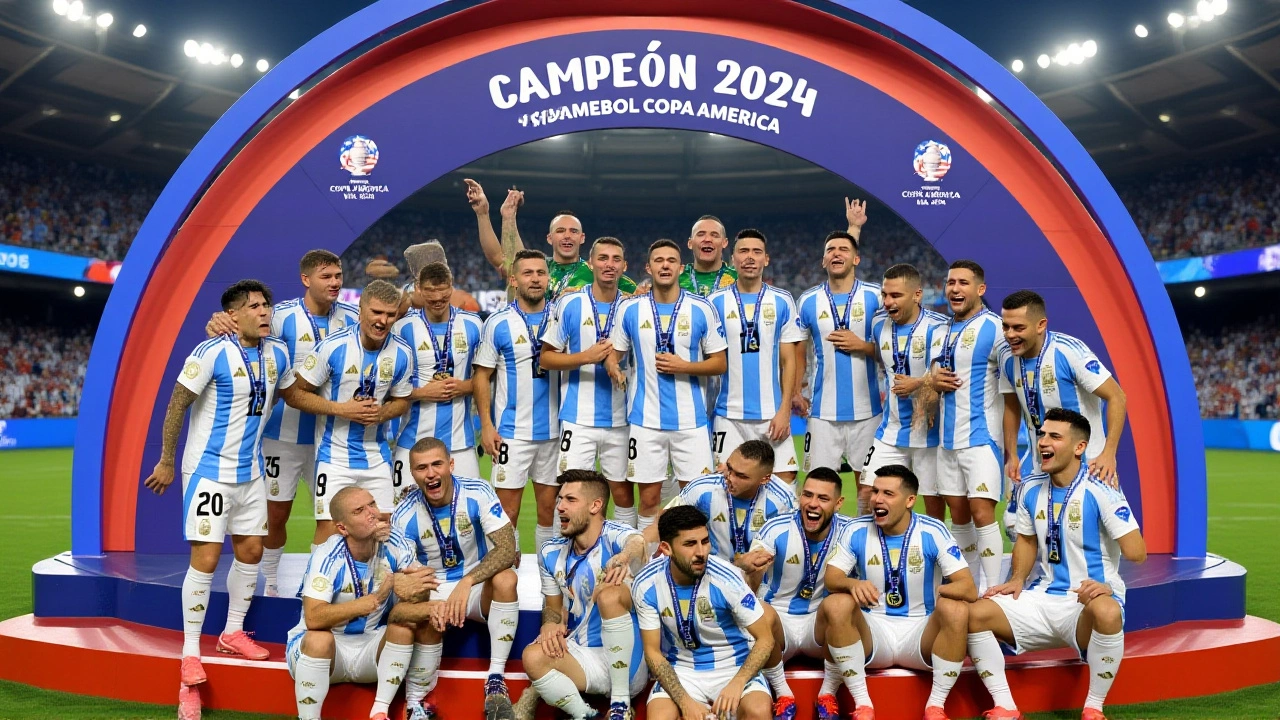Argentina's planned China friendly scrapped as CFA cites skill gap

Oct, 15 2025
When Philippe Oudinot, senior official at Argentina's high‑performance sports agency, told the Global Times on July 30, 2025 that the Albiceleste were working to line up a friendly match in China ahead of the 2026 FIFA World Cup, the idea sparked excitement on both sides of the Pacific.
But the optimism evaporated fast. By early August, reports confirmed that the Chinese Football Association (CFA) had pulled the plug on the October 8‑14 window the Argentines had earmarked. The decision, officials say, stemmed from a mix of logistical worries and a stark concern about a potential "humiliating" defeat for China, which sits 94th in the FIFA rankings compared with Argentina’s top‑spot.
Background of Argentina‑China football ties
Argentina’s relationship with Chinese fans isn’t new. Back in June 2023, a friendly against Australia in Beijing drew more than 51,000 spectators braving a sweltering summer night to watch Lionel Messi and co. The match proved a commercial bonanza and hinted at a market hungry for world‑class football.
The Argentine Football Association (Argentine Football Association) had already penciled in a 2025 tour, aiming to give coach Lionel Scaloni’s squad (first mentioned below) a taste of Asian conditions before the South American qualifiers wrapped up.
Negotiations and cancellation
Negotiations appeared on track through late July. Oudinot explained that Argentina hoped to use the China stop as a high‑profile warm‑up, especially since the team had already secured a spot in the 2026 World Cup by topping the CONMEBOL qualifying group.
Then, on July 29, a Sohu report quoted a CFA insider: "We anticipate a massive scoreline in favour of Argentina, which could demoralise our players." The insider added two concrete reasons for the pull‑out – the match’s entertainment value wouldn’t translate into developmental gains for the Chinese side, and the skill gap could be "psychologically damaging."
Those worries aren’t unfounded. China, after a 0‑7 drubbing by Japan in 2024 and recent losses to South Korea (0‑3) and Japan again (0‑2) in the July 2025 East Asian Cup, has struggled to find a competitive edge against elite opposition.
The CFA’s final word came in early August, with the organization officially announcing the cancellation and hinting at alternative opponents such as Vietnam, Malaysia, Cambodia, Thailand, India, Uzbekistan and Kazakhstan.

Argentina's revised pre‑World Cup schedule
Scaloni (first mention) soon pivoted. Argentine sports journalist Gastón Edul reported on August 7 that the team would face Mexico in Chicago on October 15, 2025. A week later, Scaloni confirmed a match against Venezuela at Hard Rock Stadium in Miami on October 10, followed by a clash with Puerto Rico at Soldier Field in Chicago on October 13.
The Puerto Rico showdown turned into a showcase – Argentina rolled to a 6‑0 victory, a result documented by Xinhua on October 14. These games, while technically friendlies, were treated by Scaloni as crucial audition pieces for players still vying for spots in the World Cup squad.
"No match involving Argentina is truly a friendly," Scaloni said in a Miami press conference on October 7. "Every international fixture provides a unique opportunity, whether it's an official qualifier or a warm‑up game." He stressed that squad places were still open, especially for younger talents impressing in these high‑stakes encounters.
Reactions from officials and fans
Chinese fans expressed disappointment on social media, many lamenting what they saw as a missed chance for their national team to test itself against the world’s best. A popular Weibo post quoted a fan: "We wanted to see Messi in action, but we also wanted to learn. It’s a shame the CFA gave up so easily."
Meanwhile, Argentine supporters cheered the alternative schedule. The Mexico‑Chicago fixture sold out quickly, and the Puerto Rico match’s 6‑0 tally sparked optimism that the Albiceleste would walk into Qatar 2026 with momentum.

Implications for both nations
- China’s development strategy: The CFA’s decision signals a pivot toward opponents of a more comparable level, aiming to build confidence rather than risk a morale‑crushing loss.
- Argentina’s preparation: By facing Mexico, Venezuela and Puerto Rico, Scaloni ensures varied tactical challenges while keeping the squad’s chemistry intact ahead of the World Cup.
- Commercial impact: The cancelled China tie likely cost both federations significant revenue; however, the alternative matches still attracted sizable audiences in North America.
- Future engagements: The CFA’s shortlist of Asian nations suggests a broader strategy to engage the region, possibly setting the stage for a multi‑team mini‑tournament in 2027.
All told, the saga underscores how football diplomacy intertwines with on‑field realities. While a marquee clash with Argentina would have lit up Beijing, the pragmatic choice reflects a deeper consideration of long‑term growth for Chinese football.
Frequently Asked Questions
Why did the Chinese Football Association cancel the friendly?
CFA officials said the main concerns were the expected large‑margin defeat against a world‑class side and the limited developmental benefit for Chinese players, who have struggled against higher‑ranked Asian teams in recent months.
Who will Argentina play instead of China?
Argentina reshuffled its pre‑World Cup itinerary, scheduling games against Mexico in Chicago (Oct 15), Venezuela in Miami (Oct 10) and Puerto Rico in Chicago (Oct 13). The Puerto Rico match ended 6‑0 in Argentina’s favour.
How does the cancellation affect China's football development?
CFA officials indicated they will now seek opponents of a more comparable level – such as Vietnam, Malaysia or Thailand – aiming to give their squad competitive minutes without the risk of a demoralising loss.
What does Lionel Scaloni say about the cancelled match?
Scaloni remarked that every match, friendly or not, is an opportunity to assess the squad. He stressed that the team remains open to new players and will treat the upcoming North‑American fixtures with the same seriousness as any World Cup qualifier.
Will Messi’s presence have influenced the CFA’s decision?
Messi’s star power was certainly a factor in the buzz surrounding the proposed tie, but CFA insiders said the primary issue was competitive balance, not the lure of a superstar appearance.